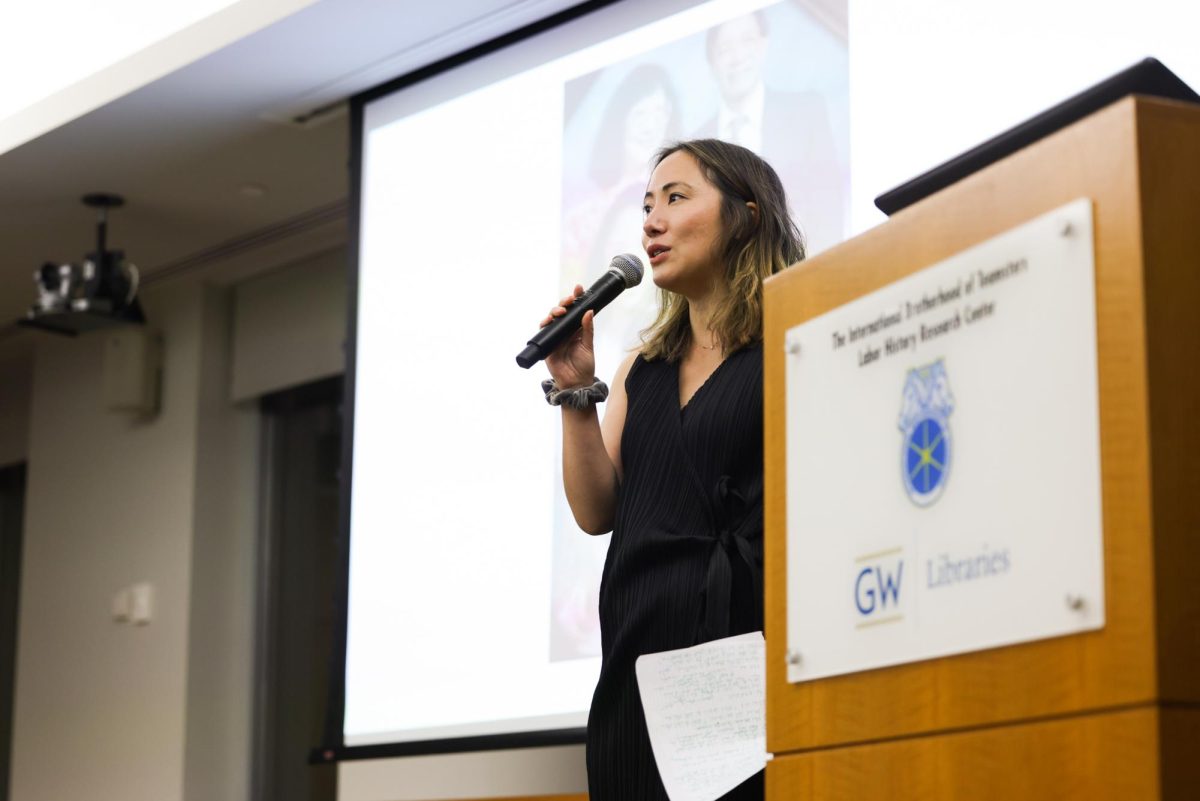During the government shutdown last fall, the phones in Capitol Hill offices were ringing nonstop. Constituents eager to voice their complaints launched into angry tirades.
Against this barrage of frustrated callers, the unpaid intern was the first line of defense. Rachael*, a sophomore manning the phones in her congressman’s office, quickly found her dream internship morphing into a nightmare.
“The worst was when some of the constituents would make it really personal and insult me or the congressman, claiming that he didn’t know anything or that I was stupid,” Rachael said. “I’d be like, well, I’m not the congressman and I’m just 19.”
For GW’s legions of political junkies and CEOs-in-training, escaping campus to intern several hours a week at a boldfaced government agency or Fortune 500 Company represents the ultimate career move.
But beneath the prestige and the high expectations, the real world awaits. Day-to-day life for interns can be stressful, overwhelming and occasionally downright uncomfortable.
“My boss would tell us really personal stories about his dating life and his Tinder and how he moved in with his girlfriend and then broke up and had to move out. He treated us like his therapist and even cried one time,” said Sarah, a senior who worked for a high-profile government agency.
Inappropriate bosses and government shutdowns aside, the most stressful aspect of unpaid internships is far less dramatic.
Finding time to go to class, work on homework and get sleep becomes increasingly complicated as rigorous internships eat up hours during the day. While determined interns might willingly sacrifice personal time for the good of their future career, the demands can pile up.
“As someone who had full class load, was writing a thesis and worked 30 hours a week unpaid, I was never sleeping and always exhausted. My teachers kind of thought I slacked off a little bit and so did my intern coordinator,” Sarah said.
If juggling homework and work hours wasn’t difficult enough, many interns find their balancing act further aggravated by hours spent idly waiting for the phone to ring.
“I would just be at work, after we were just getting out of recess and nobody was calling. I was just sitting there, working 17 hours a week doing nothing when I could be home writing an essay,” Rachael said.
Still, for a large segment of the population who cannot afford to work for free, internships bear great risks.
These situations become especially frustrating as the benefits of unpaid internships become increasingly hazy. Sixty-four percent of GW’s 2012 graduating class percent had interned during their time at GW, but only 39 percent graduated with a full-time job.
Ultimately, students say it can be up to the intern to determine what they’re getting out of their experience.
“Lower the expectation of ‘I’m going to change the world.’ You’re not,” Zack, a sophomore who interned for nine months in the Senate, advised.
“Granted, that doesn’t mean anything bad. You’re going to be doing a lot of research, working on a lot of smaller projects, running things to other offices, which can still be meaningful and still be fun,” he said.
*The Hatchet granted anonymity to students in this story so they could speak freely about former employers.





